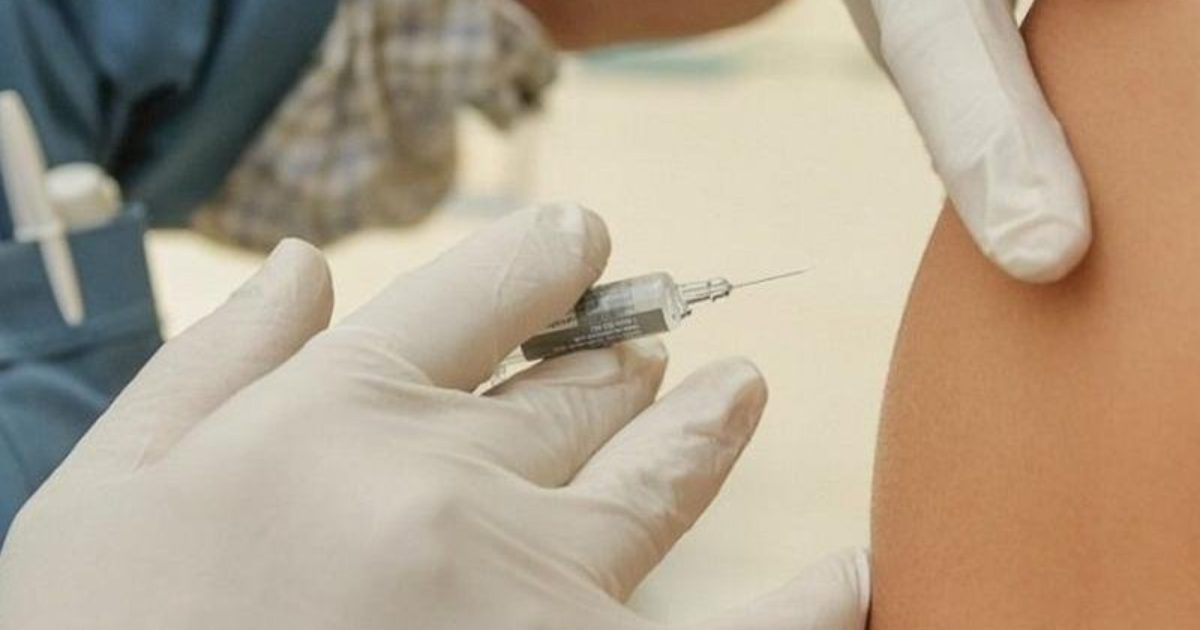A study published by The New England Journal of Medicine evaluated the Moderna mRNA COVID-19 injection in children six months to five years of age.
The paper, released October 19th, showed how many young children experienced adverse reactions following the shots.
The study’s findings are disgusting.
“Curious why this isn’t getting more attention… According to Moderna themselves: ‘serious adverse events’ affected 1 in 200 toddlers. But they still concluded the mRNA vaccine was ‘safe in children,'” Florida Surgeon General Dr. Joseph Ladapo tweeted.
https://t.co/gyJR4H06uL Curious why this isn’t getting more attention… According to Moderna themselves: “serious adverse events” affected 1 in 200 toddlers. But they still concluded the mRNA vaccine was “safe in children.”
— Joseph A. Ladapo, MD, PhD (@FLSurgeonGen) October 29, 2022
From the results section of the study:
On the basis of safety and immunogenicity results in part 1 of the trial, the 25-μg dose was evaluated in part 2. In part 2, 3040 children 2 to 5 years of age and 1762 children 6 to 23 months of age were randomly assigned to receive two 25-μg injections of mRNA-1273; 1008 children 2 to 5 years of age and 593 children 6 to 23 months of age were randomly assigned to receive placebo. The median duration of follow-up after the second injection was 71 days in the 2-to-5-year-old cohort and 68 days in the 6-to-23-month-old cohort. Adverse events were mainly low-grade and transient, and no new safety concerns were identified. At day 57, neutralizing antibody geometric mean concentrations were 1410 (95% confidence interval [CI], 1272 to 1563) among 2-to-5-year-olds and 1781 (95% CI, 1616 to 1962) among 6-to-23-month-olds, as compared with 1391 (95% CI, 1263 to 1531) among young adults, who had received 100-μg injections of mRNA-1273, findings that met the noninferiority criteria for immune responses for both age cohorts. The estimated vaccine efficacy against Covid-19 was 36.8% (95% CI, 12.5 to 54.0) among 2-to-5-year-olds and 50.6% (95% CI, 21.4 to 68.6) among 6-to-23-month-olds, at a time when B.1.1.529 (omicron) was the predominant circulating variant.
The researchers admit the experimental shot was 50% effective or less for children five years of age and younger.
That doesn’t sound too effective!
Cont. from the safety section:
Systemic adverse reactions after either injection were more common in the mRNA-1273 group than in the placebo group (Figure 2 and Tables S18 and S19). The most common systemic adverse reaction among children 37 months to 5 years of age was fatigue; among children 6 to 36 months of age, the most common reactions were irritability or crying, sleepiness, and loss of appetite. The majority of systemic adverse reactions in both groups were of grade 1 or 2, and grade 3 adverse reactions were infrequent. The most common grade 3 systemic adverse reactions were fatigue and fever (temperature, ≥39.0°C) among children 37 months to 5 years of age and irritability or crying and fever of at least 39.6°C among children 6 to 36 months of age in the mRNA-1273 and placebo groups. Most systemic adverse reactions in the mRNA-1273 group occurred within 2 days after either injection and persisted for a median of 2 to 3 days.
cont.
In the mRNA-1273 group, fever (temperature, ≥38.0°C) occurred more frequently after the second injection than after the first injection, and the median duration was 1 to 2 days after either injection in both age cohorts. The majority of fevers ranged in temperature from 38.0 to 38.9°C (Figs. S5 and S6). In the cohort of children 2 to 5 years of age, a confirmed grade 4 fever (temperature, >40°C) was noted in three participants in the mRNA-1273 group after the first injection, in five participants in the mRNA-1273 group after the second injection, and in two participants in the placebo group after the first injection.
cont.
The incidence of serious adverse events was low overall and was similar in the mRNA-1273 group and the placebo group in the cohort of children 2 to 5 years of age. In the cohort of children 6 to 23 months of age, eight serious adverse events occurred in the mRNA-1273 group, and none occurred in the placebo group. No serious adverse events related to mRNA-1273 or placebo were reported in 2-to-5-year-olds within 28 days after either injection. One participant in the mRNA-1273 group in the 6-to-23-month-old cohort had fever and febrile seizure that was categorized as a serious adverse event 2 days after the first injection, and a maculopapular rash developed in the participant 2 days later, suggesting a concomitant viral infection (Table S25); the participant subsequently received the second injection without recurrence.
Yet, after these results from the trials, the researchers made this conclusion:
Two 25-μg doses of the mRNA-1273 vaccine were found to be safe in children 6 months to 5 years of age and elicited immune responses that were noninferior to those in young adults.
Read the full study at The New England Journal of Medicine.



Join the conversation!
Please share your thoughts about this article below. We value your opinions, and would love to see you add to the discussion!